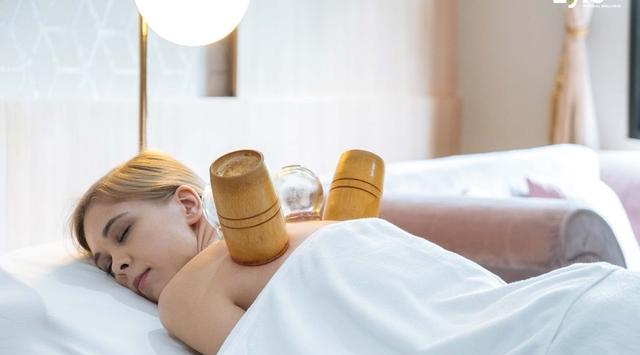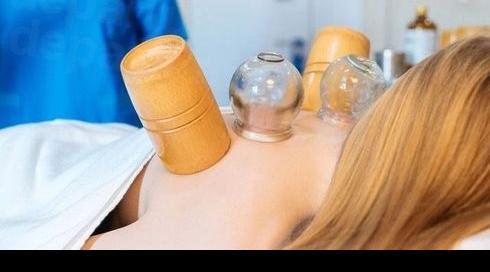
Can Herbal Medicines Boost Your Serotonin Level? Here is Our Scientific View
Abstract
In recent years, the prevalence of depression and mood disorders has been on the rise. we conducted this study to identify and study the action mechanisms of the medicinal plants that are effective on serotonin, i.e. neurotransmitter of happiness and mood, and depression symptoms. Hydroxytryptamine, 5-HT-5 (serotonin) is one of the hormones that contribute fundamentally to regulating the mood and cognition in humans. The serotonergic system is a complicated system whose dysfunction leads to the development of certain diseases such as depression (1). Chemical treatments to treat disorders due to decreased levels of serotonin including depression and other psychiatric disorders lead to several complications such as certain behavioral disorders in addition to imposing costs to induce happiness and elevating the levels of certain hormones (2-4). In addition, psychotherapies may be stigmatized, which intensifies the significance of alternative treatments (5). The use of medicinal plants is increasing day by day due to fewer side effects and lower cost. Medicinal plants can be considered an effective treatment method for treating different diseases including mood swings (6-12). We, therefore, conducted this study to identify and study the action mechanisms of the medicinal plants that are effective on serotonin, i.e. neurotransmitter of happiness and mood, and in eliminating depression symptoms.

Plants and their derivatives are not only exerting therapeutic effects on mild depression but also exhibit suitable therapeutic response in treating more severe disorders such as major depressive disorder (MDD) to improve mood conditions and eliminate depressed mood through affecting the serotonergic system. Available research findings have indicated that the plants and several phytocompounds can play a role in inducing feelings of happiness in humans through affecting the system of serotonin synthesis and absorption.
Medicinal plants such as Bupleurum falcatum, Amaryllidaceae family, Tagetes lucida Cav., Hemerocallis citrina, Uncaria lanosa, Wallich var., Appendiculata Ridsd, Cynanchum auriculatum Royle ex Wight, Fructus Akebiae, Sideritis species, Curcuma longa, Annona cherimolia, Hypericum perforatumm, Areca catechu nut, Borago officinalis, Trigonella foenum-graecum, Apium graveolens, Calluna vulgaris, Tagetes erecta L., Paeonia, Rosmarinus officinalis, Hemerocallis citrina, Lafoensia pacari A. St.-Hil, Moringa oleifera, Melissa officinalis L., Mangifera indica and Gastrodia elata Blume can increase or reuptake the serotonin level in the brain bay various mechanisms (13-34). Other phytochemicals are effective on serotonin level. They are included Quercetin, Equol, Evodiamine, Berberine, Vitexin, Turmerone, Auraptenol, Silibinin, Albiflorin, Echinocystic acid and Chlorogenic acid (35-45).

In addition, many other plants, as combined or formulated, have been used in traditional medicine or experimental studies that have antidepressant or anti-anxiety effects. For example, Yuanzhi-1 (46), Combination of St. John’s wort (Hypericum perforatum) and passion flower (Passiflora incarnata) (47), combination of Clitoria ternatea Linn., Withania somnifera Dun., Asparagus racemosus Linn., and Bacopa monniera Lin. (48), Suanzaorenhehuan formula (49), Kai Xin San (Ding-Zhi-Xiao-Wan) (50, 51), Sini San (52), Zuojin pill (53), Zhi-Zi-Hou-Po (54), Yiqi Huatan (55), Jie Yu Chu Fan capsule (56), Suanzaorenhehuan Formula (57), and Zhimu-Baihe (Zhimu: Anemarrhena asphodeloides; Baihe: Lilium brownii var. viridulum) (58), as Chinese herbal combinations, caused increase in the HT-5 levels in the hypothalamus and decrease in the symptoms of depression through modulating the monoaminergic neurotransmitters. Kaixin Jieyu decoction was studied for its potential effects in modulating behavior and improving depressive moods. Results demonstrated that treatment led to increased expression of HT2A receptor mRNA-5 and its modulation in the cerebrum (59). In addition, Xiachaihutang, after 4-week gavage, caused increase in the HT-5 levels in the hippocampus in mouse (60). Another study also reported that this herbal combination helped improve depressive behaviors in mouse through increasing hypothermia and 5-hydroxytryptophan (5-HTP), 5-HT, and hydroxyindoleacetic acid (5-HIAA)-5 as well as increasing HT-5 reversal (61). Danzhi Xiaoyao San is another combination that is effective on the levels of tryptophan and HT-5 such that it can serve as a nature-based treatment for depression (62). Chaihu-Shugan-San decreases symptoms of depression through increasing the expression of HT1A receptor mRNA-5 and hippocampal cell proliferation in the dentate gyrus in epileptic rats (63). Wang et al. studied the effect of Ziziphi spinosae lily powder suspension on depression in rats. They observed that this combination could enhance happiness and improve depressive symptoms in rat through the mechanism of increasing serum levels of peripheral blood and 5-HIAA-5 in the brain (64).
Plants are effective in enhancing happiness and decreasing symptoms of depression due to certain compounds such as flavonoids, lignanes, phenolic acids, coumarins, diterpene alkaloids, terpenes, saponins, amines, naringenin, quercetin derivatives, eugenol, piperine, berberine, hyperforin, riparian derivatives, and ginsenosides (65). The possible mechanism of action illustrated in the following figure.

Medicinal plants and their derivatives can therefore be used as independent treatments or adjuvant therapies (complementary therapies) for chemical treatments in increasing serotonin levels and inducing happiness. However, although these drugs may exert synergistic effects, they may also lead to spontaneous adverse drug reaction in certain cases such as using St. John’s wort (H. perforatum) alongside depressive antibiotics. Lack of paying attention to drug dosage and the likelihood of poisoning should be taken into account as therapeutic issues related to use of medicinal plants. It is therefore recommended to use medicinal plants for treatment under supervision of an expert of phytomedicine.
About the Author:
Saeid Heidari-Soureshjani: Research and Technology Deputy, Shahrekord University of Medical Sciences, Shahrekord, Iran. Website owner of Salemziba/honarfardi




